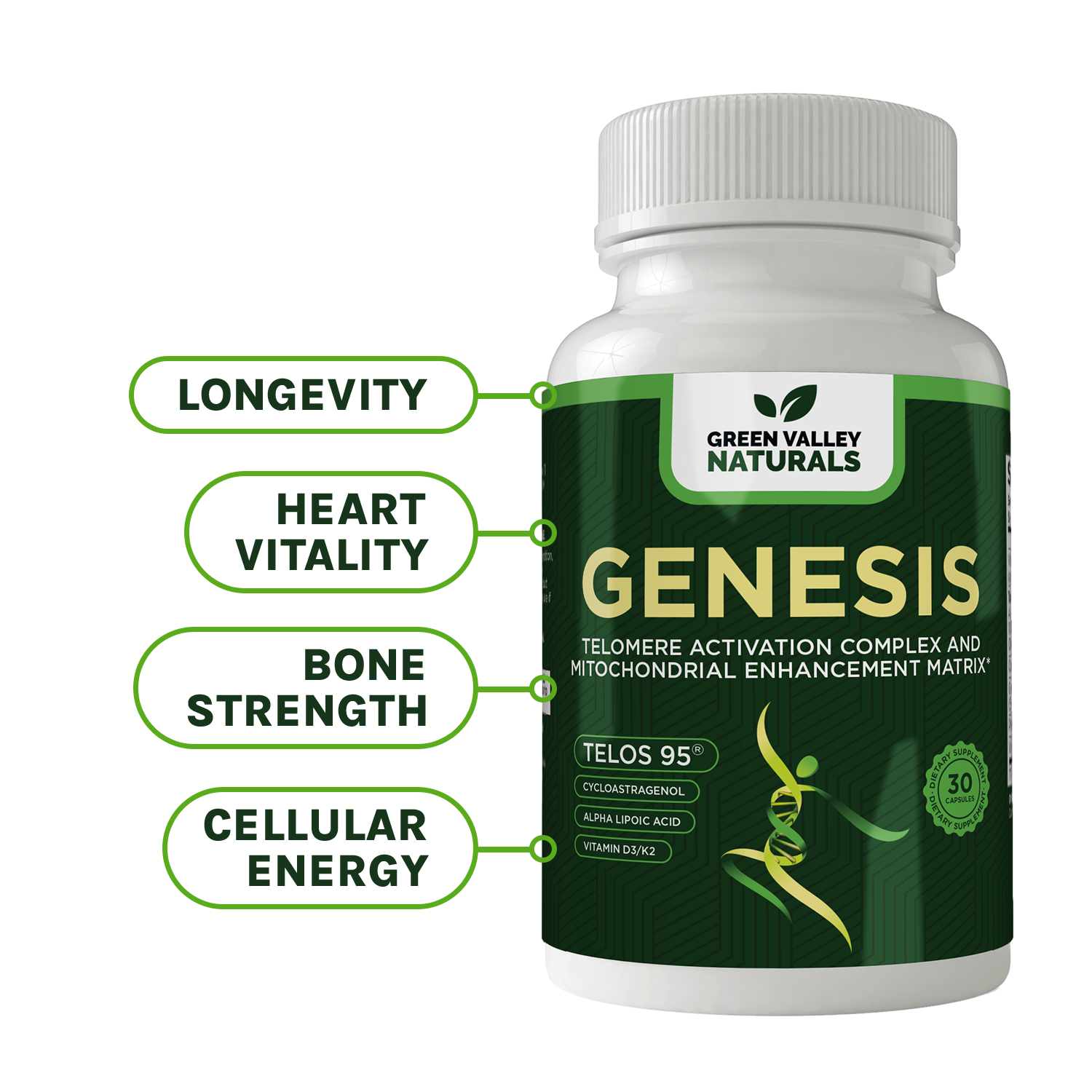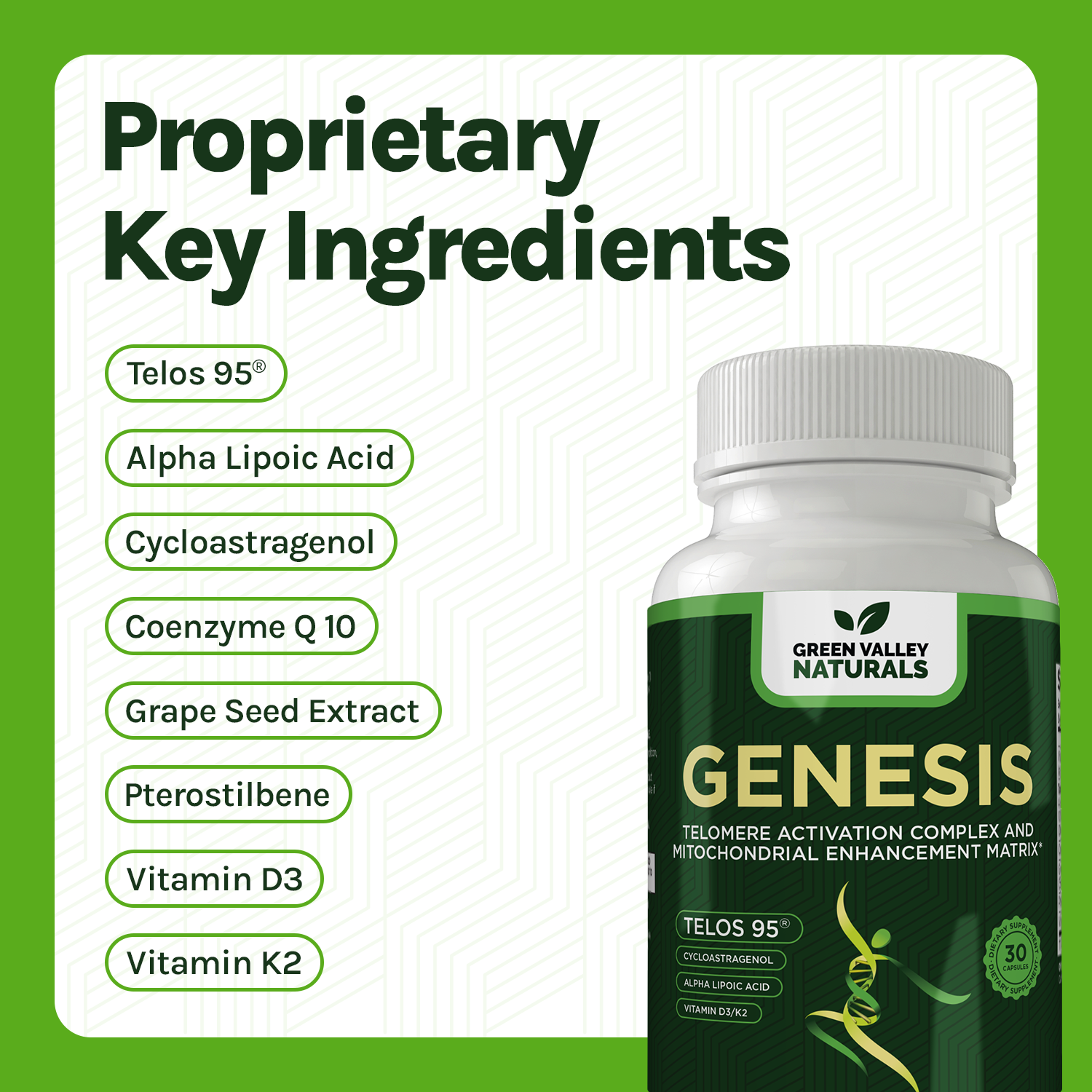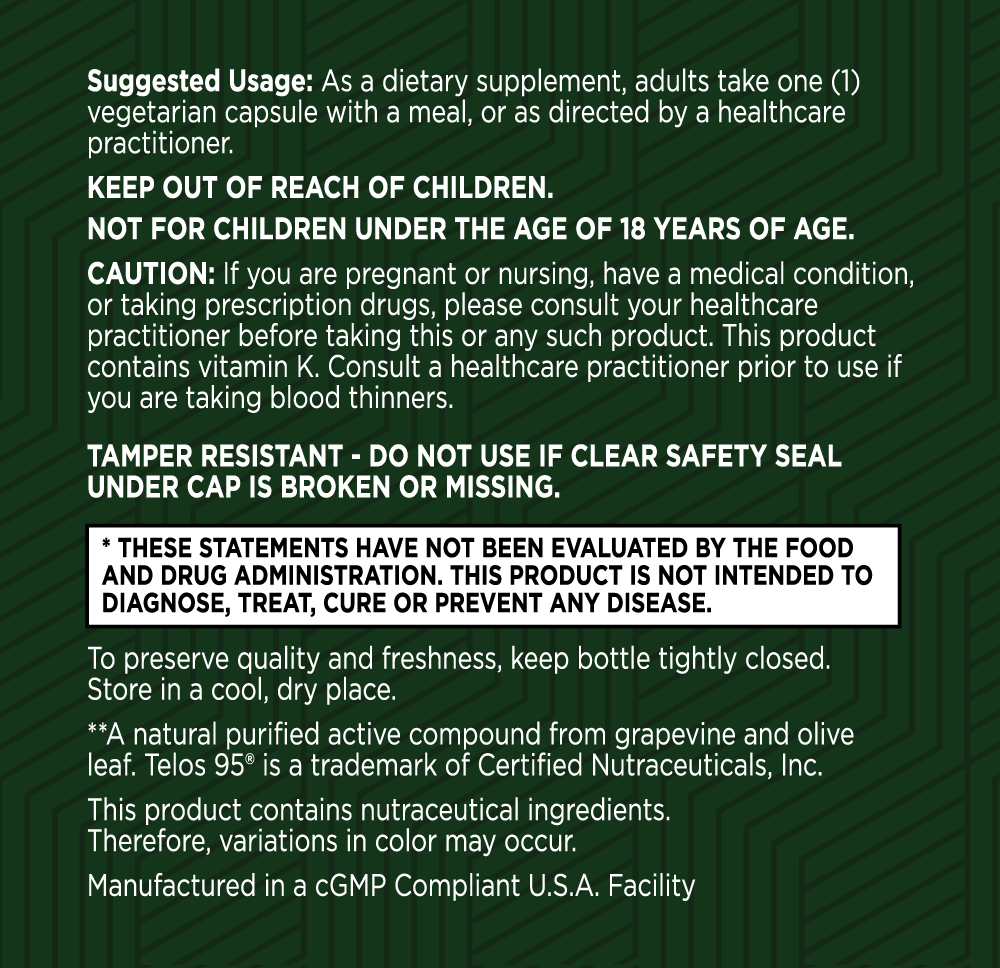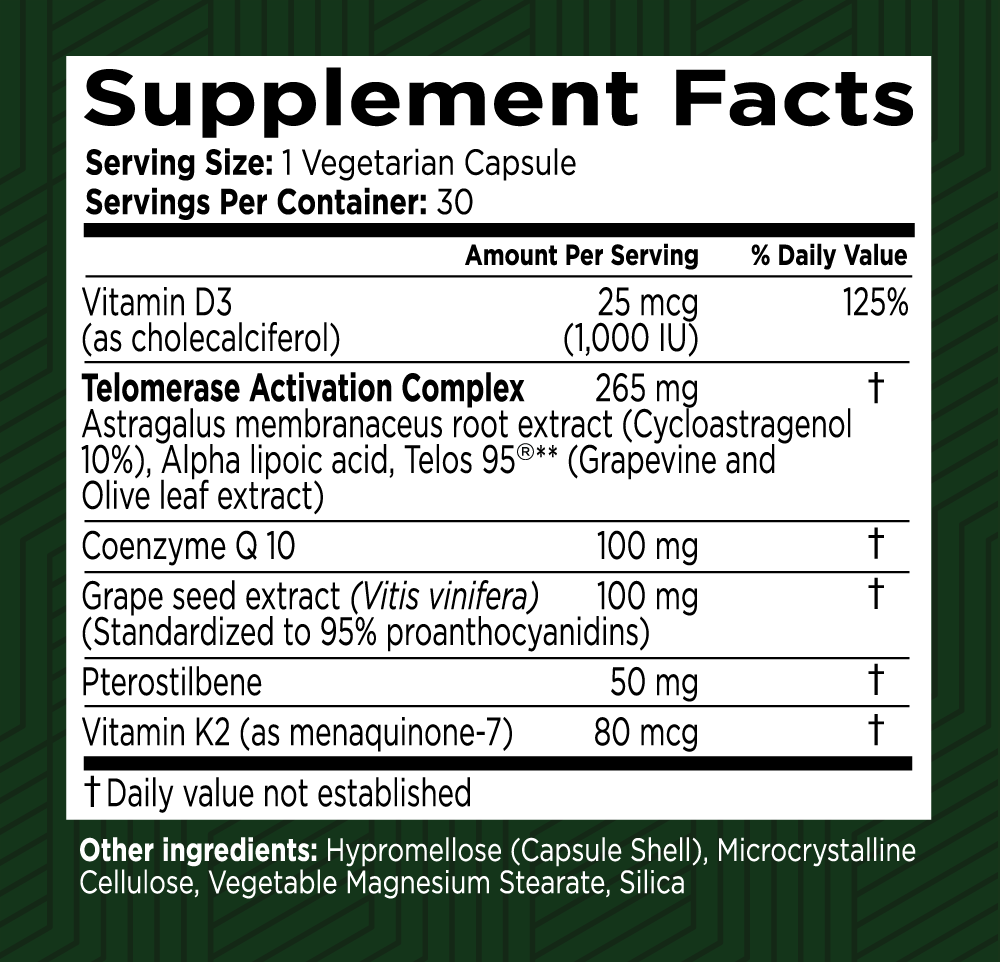Genesis
Telomere Activation Complex And Mitochondrial Enhancement Matrix....
Key Ingredients

Coenzyme Q 10
Vital to human life, Coenzyme Q10 (CoQ10) plays an important role in cellular respiration, which generates 95 percent of the energy used by the body to support life.

Grape seed extract (Vitis vinifera) (Standardized to 95% proanthocyanidins)
Known for improving memory, this extract contains antioxidants that are significantly stronger than vitamins C and E. It's shown to improve brain function and protect against cognitive decline.

Pterostilbene
Referred to as "Organ Armor," this compound is found in plants and has protective effects on various organs. It supports heart and cardiovascular health, lowers blood pressure, reduces bad cholesterol, and has been shown to lower blood sugar.

Vitamin D3 (as Cholecalciferol) (1000 IU)
Vitamin D, provided as cholecalciferol (Vitamin D3), is an essential nutrient that plays a critical role in maintaining overall health. Each serving delivers 1000 IU of Vitamin D3, ensuring an adequate supply to support bone health, immune function, and various other physiological processes. Recognized for its numerous health benefits, Vitamin D3 is vital for maintaining a robust and healthy body.

Telomerase Activation Complex
Astragalus membranaceus root extract (Cycloastragenol 10%), Alpha lipoic acid, Telos 95®** (Grapevine and Olive leaf extract)
Extracted from the Astragalus plant, CAG has been shown to lengthen telomeres, effectively reversing the biological age of cells.

Vitamin K2 (as menoquinone-7)
This nutrient plays a critical role in managing calcium deposition in the body. It helps ensure that calcium is deposited in the bones where it's needed, rather than in the arteries or other tissues. Vitamin K2 is essential for maintaining bone density and cardiovascular health.
Frequently Asked Questions
Your health is our top priority
Here at Green Valley, we only work with US-based manufacturing facilities that are cGMP (Good Manufacturing Practices) compliant and FDA inspected.
Our products are triple tested by our manufacturers to ensure potency and purity and are stored in our temperature and humidity-controlled warehouse right here in the Shenandoah Valley, Virginia. And we ship directly to your doorstep – we don’t share warehouse space and we don’t hand off your business to a third party to fulfill your order.
Best of all, all Green Valley products come with our 90-day Satisfaction Guarantee. If you are unhappy with the product for any reason, simply call or email our customer support team and return the unused portion of the product within 90 days of your order. We’ll refund every penny of your purchase (less shipping), no questions asked!

Genesis Customer Reviews
Overall pretty satisfied with them
Overall pretty satisfied with them. Product shipment slightly slow but reliable. Taste of their powder products pretty good and accurate for me. Prices have gone up, so has everything else, lol. Apparently they do in house testing of their products for quality control. I Keep up to date on Molecular Biology/Biochemistry and can read the labels of ingredients and actually understand what they are and how they work biologically. Claims are at least somewhat science backed by real medical/science sciences, actually read the full articles about the ingredients and they are legit. Found little to any statistical shenanigans in the studies and I know how to look for that. Overall pretty good Business for supplements. Just a little slow on product delivery.
I have been using Genesis since 2019
I have been using Genesis since 2019. I feel young for my age and have improved energy, though I'm not as active as I used to be. I appreciate the simple ingredients of Genesis as others tend to add extra B vitamins and sometimes caffeine, and also some have added way too high a dose of vitamin D. I like that it's 1 capsule per day. Genesis truly improves my ability to be emotionally and physically stronger and be able to adapt to changing environments. That's definitely a plus being over 50. I'm less active now, but I have more oomph to get things done because of Genesis. Consistency is king, so continued use is key. Genesis is the best Telomere product out there and I appreciate that it doesn't have extra B vitamins, a higher vitamin D serving, nor caffeine. You can get those items another way. It doesn't all have to be in 1 capsule. Thanks for being consistent and minimal with your ingredients. I think most of the time I notice improvements after 90-180 days. I don't expect miracles and healing takes time.
Physically would be things with my skin health and coloring
Physically would be things with my skin health and coloring. Seems possible that my reaction to sun has improved as I always burned very easily but now it seems like I resist burning and actually I have more of a tan. There are other things I notice also, but I would like to give it a little more time and would like to comment on things that I believe I am noticing. Knock on wood, but this possibly is one of the best supplements I have ever used in my life and believe me, I have tried a lot of them. I believe it has helped me with my confidence level, In a good way. Again, I would like to give it more time and I would be more than happy to comment on more things that I might notice. I noticed results pretty quickly. At first, I thought maybe it was just my imagination, but I had my wife use some of my doses and I noticed things about her that were different in a positive sense.







